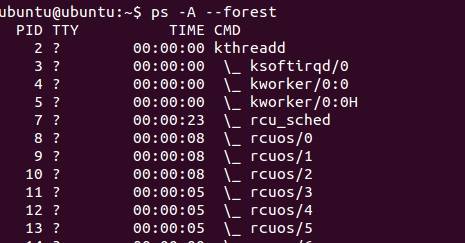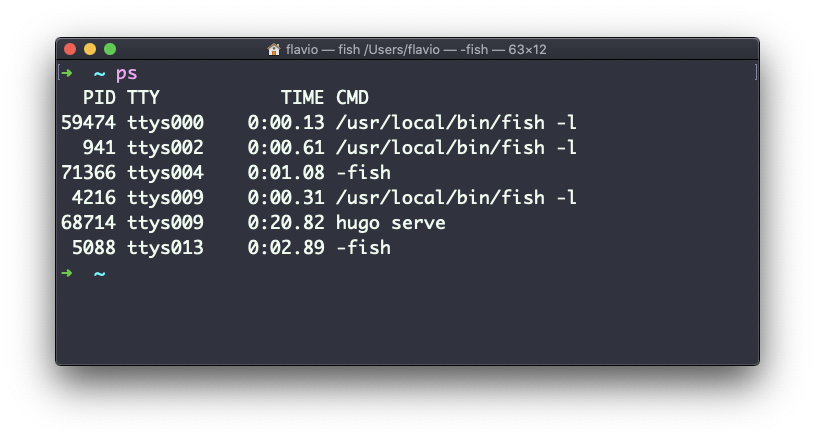

Imposed upon the set of all processes when some BSD-style (without x Lift the BSD-style "must have a tty" restriction, which is r Restrict the selection to only running processes. T Select all processes associated with this terminal. N Select all processes except those that fulfill the specified conditions It is normally implied by the aįlag, and is only useful when operating in the sunos4 personality. This flag is obsolete and may beĭiscontinued in a future release. deselect Select all processes except those that fulfill the specified conditions d Select all processes except session leaders. a Select all processes except both session leaders (see getsid(2))Īnd processes not associated with a terminal. List all processes when used together with the x option.

Option causes ps to list all processes with a terminal (tty), or to The set of processes selected in this manner is in addition to the set of Options are used or when the ps personality setting is BSD-like.

Upon the set of all processes when some BSD-style (without "-") PID 42: ps -q 42 -o comm= SIMPLE PROCESS SELECTION a Lift the BSD-style "only yourself" restriction, which is imposed Of syslogd: ps -C syslogd -o pid= Print only the name of

User-defined format: ps -eo pid,tid,class,rtprio,ni,pri,psr,pcpu,stat,wchan:14,comm ps axo stat,euid,ruid,tty,tpgid,sess,pgrp,ppid,pid,pcpu,comm ps -Ao pid,tt,user,fname,tmout,f,wchan Print only the process IDs Threads: ps -eLf ps axms To get security info: ps -eo euser,ruser,suser,fuser,f,comm,label ps axZ ps -eM To see every process runningįormat: ps -U root -u root u To see every process with a System using BSD syntax: ps ax ps axu To print a process Using standard syntax: ps -e ps -ef ps -eF ps -ely To see every process on the EXAMPLES To see every process on the system If it meets any of the given selection criteria. The default selection is discarded, and then the selected processes areĪdded to the set of processes to be displayed. These effects are not considered when options areĭescribed as being "identical" below, so -M will beĮxcept as described below, process selection options are additive. Set of all processes filtered to exclude processes owned by other users or You alternately, this may be described as setting the selection to be the Selection to include processes on other terminals (TTYs) that are owned by The use of BSD-style options will also change the process You can override this with the PS_FORMAT environment The default display and show the command args (args=COMMAND) instead of theĮxecutable name. The use of BSD-style options will add process state (stat=STAT) to Hh:mm:ss format (time=TIME), and the executable name (ucmd=CMD). Terminal associated with the process (tname=TTY), the cumulated CPU time in It displays the process ID (pid=PID), the It is fragile, subject toĬhange, and thus should not be relied upon.īy default, ps selects all processes with the sameĮffective user ID (euid=EUID) as the current user and associated with the To aid in transitioning old scripts and habits. If the user named xĭoes not exist, this ps may interpret the command as Processes owned by a user named x, as well as printing all processes The POSIX and UNIX standards require that ps -aux print all Note that ps -aux is distinct from ps aux. There are some synonymous options, which are functionally identical,ĭue to the many standards and ps implementations that this ps Options of different types may be freely mixed, but conflicts canĪppear. 3 GNU long options, which are preceded by two dashes. 2 BSD options, which may be grouped and must not be used with a dash. This version of ps accepts several kinds of options: 1 UNIX options, which may be grouped and must be preceded by a dash.
Ps ef linux command update#
If you want a repetitive update of the selection and the Ps displays information about a selection of the active Ps - report a snapshot of the current processes.


 0 kommentar(er)
0 kommentar(er)
